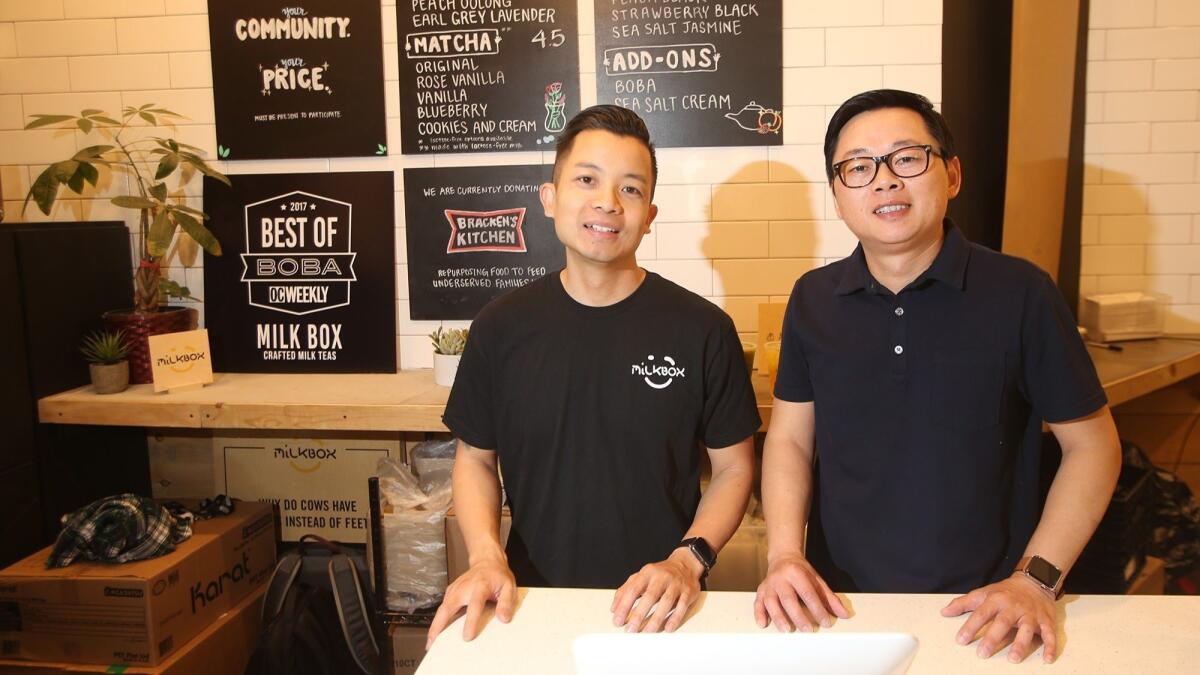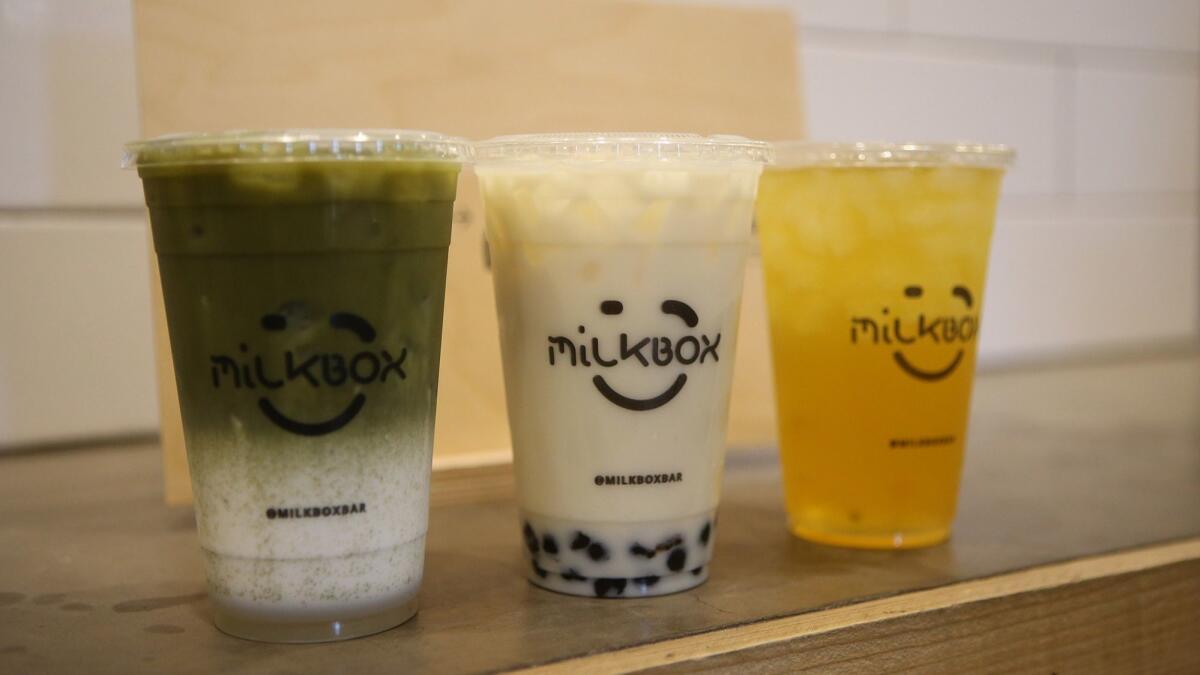Milk Box lets customers pay what they want for boba and milk tea

- Share via
Robert Hoang and Truong Kim were nervous when they chose to deploy a risky business concept earlier this year that allows customers to pay what they want at their boba and milk tea business, Milk Box.
The model is working, though profits have taken a slight hit, Hoang said.
When Hoang and Kim started Milk Box in Mission Viejo in 2015, they charged customers fixed prices like any other business.
The business’s atypical hook was in its product. Hoang said they were among the first local businesses to use organic products with their teas.
“We took milk tea to the next level — with organic teas, milk and sugar,” Hoang said.
Customers’ response was immediate.
Within about a year and a half, Milk Box expanded to two other stores in Westminster and Tustin.
Amid growing success, an opportunity arose toward the end of 2017 to work with friends to help advance their business. The partnership involved the sale of Milk Box.
Hoang, 40, of Irvine and Truong, 40, of Westminster agreed to the opportunity and found a buyer for their business, but the staff most likely would be laid off.
As a way of thanking the staff before the sale, Hoang and Truong decided to announce that all proceeds from the final two days of the year would go to the employees.
But the tremendous turnout by the community in those two days made them reconsider the deal.
“When we started Milk Box, our mission statement was to be people-centered,” Hoang said. “It didn’t feel like we were living up to that. We were celebrating our velocity of growth and forgot about people.”
Hoang said they sold the Westminster location and used a portion of the money to pay off the would-be partners.
Hoang and Truong then came up with a new idea: a pay-what-you-want concept.
Customers can pay whatever amount they want for a drink, including nothing at all. Then, 50% of the proceeds are given to staff on top of their wages. Of that 50%, staff is encouraged to donate to a particular charity that is chosen every quarter of the year.
Managers consult with staff to decide which charity to feature. Currently, staff is donating to Bracken’s Kitchen, a hunger relief charity in Huntington Beach.
“I have been blown away by the generosity of our staff,” Hoang said.
While customers now understand the model, it took a while for it to catch on.
“When we first started, we took all the prices off the menu and it confused the heck out of people,” Hoang said.

Now the business lists a suggested price of $4 as a guiding principle for customers. Originally, the average cost of a drink was about $5.
Hoang said the new concept has been successful, though they don’t reap the same profits as they did in the past.
About 70% of customers pay the suggested price, 15% pay more and the rest pay less, Hoang said. While there have been people who pay nothing, there was a woman who paid $100 for a drink and others who pay substantially more than the suggestion.
Hoang and Truong said they are careful to cultivate a community-first approach in their staff. When somebody orders a drink and walks out without having paid, Hoang said his staff knows to be kind to the individual.
Hoang said he’s seen the transformation of customers previously unwilling to pay anything to paying above the suggested price.
“We measure success in a different way than most businesses — it’s no longer about growth for us,” Hoang said. “Success, for us, means making an impact in our community.”
A person-centered business approach is an ideal that was ingrained in Hoang since his childhood.
His mother, Mui, a Vietnamese immigrant, raised three children after Hoang’s father left the family when Hoang was 7. Mui worked as a seamstress to provide for her children. Hoang remembers how poorly she was treated by her employers.
“I thought, ‘One day, when I get the opportunity to own a company, I want to treat people with respect,’” Hoang said.
Twitter:@benbrazilpilot
All the latest on Orange County from Orange County.
Get our free TimesOC newsletter.
You may occasionally receive promotional content from the Daily Pilot.






